
What not-for-profit leaders need to know in 2026
Posted on 12 Feb 2026
Our special NFP trends report distils the views of more than two dozen experts.
Posted on 02 Oct 2023
By Greg Thom, journalist, Institute of Community Directors Australia

The Climate Council is celebrating a decade of advocating to save the planet.
When former Prime Minister Tony Abbott abolished the Climate Commission in 2013, many of those trying to sound the alarm about climate change faced a stark choice: give up or soldier on.
The decision to fight on for the health of the planet in the face of government indifference and community apathy led to the creation of the Climate Council.
In the largest crowdfunding campaign ever seen in Australia to that time, more than 16,000 people pitched in more than $1.1 million dollars in just 10 days to bring the organisation to life.
Rising like a phoenix from the ashes of the former Commission as an independent, community-funded organisation focused on evidence-based scientific research, the Climate Council has just celebrated its tenth anniversary.
In an online panel event to mark the milestone, the Council’s leading experts discussed the highs and lows of the past decade, and what still needs to be done in the years to come.
Climate Council Head of Advocacy - and panel facilitator - Dr Jennifer Rayner said the deluge of public support that lee to the creation of the Climate Council showed Australians valued independent science-based information and cared about climate action.
Climate Council CEO Amanda McKenzie recalled that the push for action on climate change “hit rock bottom” in 2013.
She said that period was characterised by the anti-climate science Abbott government gaining power; the rancorous carbon tax debate; a debilitating drought; and persistent questioning of the validity of climate change in sections of the media.
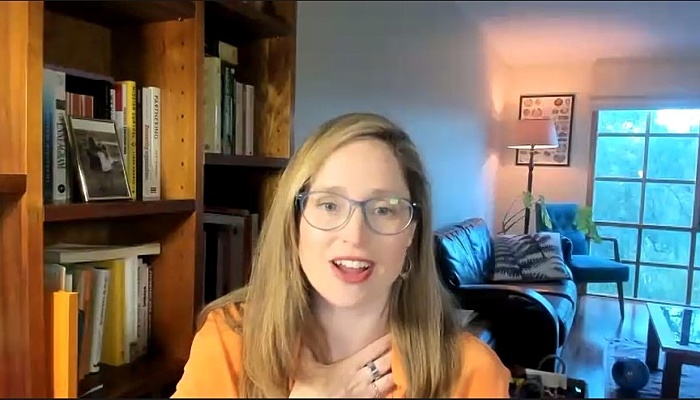
“It was a real low point,” said Ms McKenzie, who worked at the independent Climate Commission before helping help launch the Climate Council.
She said in the face of climate denialism, the Council's advocates realised that fact-based information on climate change would be critical to changing the conversation in the years following its formation.
She said that belief proved to be true.
“I think what I feel really proud of is we have played a really important part in putting climate at the top of the agenda,” said Ms McKenzie.
“When I think back to ten years ago, the only people who were talking about climate were policy wonks, and a few scientists and politicians and it was all very negative and felt far away from the general public.
“The Climate Council has done an enormous amount to diversify those voices.”
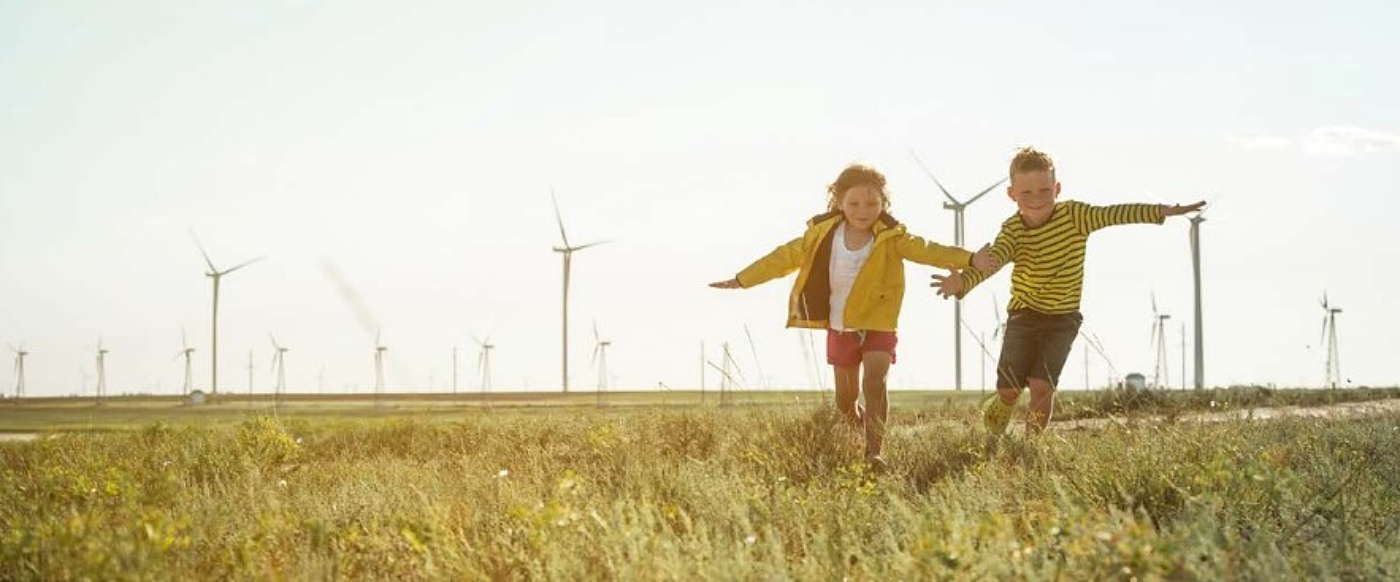
Capturing hearts and minds
Environmentalist and Climate Council chief councillor, Professor Tim Flannery said the Council’s biggest achievement has been changing public sentiment.
“Back in 2013 people weren’t as well informed as they are today and they didn’t realise the extent of the threat that it [climate change] represents,” he said.
“Through hard work, we’ve been able to change that.”
One of Australia’s leading experts on the impact of climate change on species and ecosystems, Professor Lesley Hughes, agreed.
“The average person, when we have an extreme weather event, now thinks ‘climate change’ and I don’t think that was the case ten or 15 years ago.”
Professor Hughes said much had been learned over the years about climate change communication.
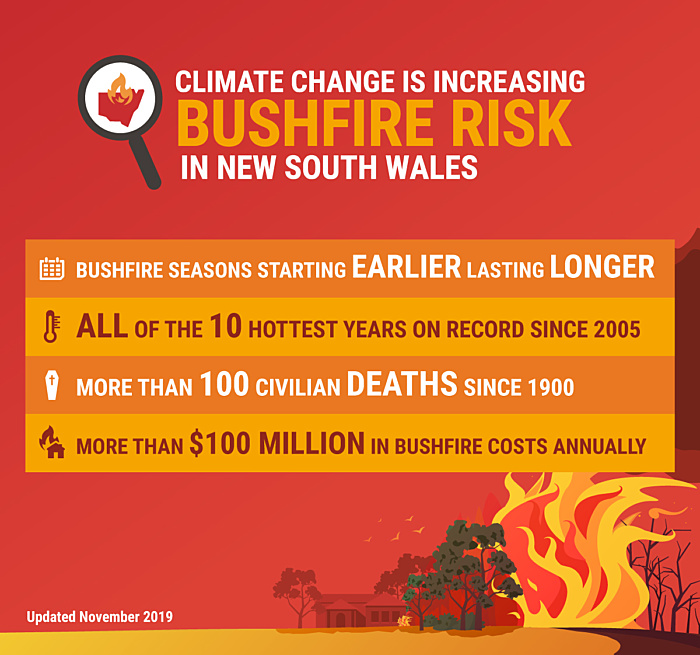
“It’s the impact on places we love and that we could lose that really resonates with people,” she said.
Former firefighter and internationally recognised natural disaster response expert, Greg Mullins recalled the frustration of trying to warn then Prime Minister Scott Morrison of the link between climate change and severe bushfires that devastated much of the east coast.
“We sort of predicted what was going to happen, but the government weren’t interested,” said Mr Mullins.
“Because if they admitted that they had to do more to deal with these fires as they unfolded, they had to admit that something more needed to be done about climate change, so that was a really big downer.”
Mr Mullins said persistent advocacy helped get the word out, shifting public sentiment and ultimately the government.
“So, we started to shift the dial and people saw that these supercharged natural disasters were happening as a result of climate change,” he said.
“We are experiencing the climate crisis in a way that we weren’t ten years ago because it’s all around us.”
People power is the key
Dr Rayner reiterated the importance of people power in changing the conversation around climate change.
“We know so many of the people that work with us and support us do that great work in their communities, talking to people, to politicians to help spread the message of the Climate Council’s research and reports and work.
“We’ve always been so proud to be people powered, because we know that voice of the community is what gives us the ability to have the impact that we have.”
Energy industry veteran Greg Bourne said he knew a decade ago it would be possible to make the transition from fossil fuels to renewable energy, but it would take a lot of hard work.
“The technologies have come along amazingly,” said Mr Bourne, a former chair of Australian Renewable Energy.
“The stone is over the hill and it’s rolling down and fossil fuels are on the way out. All we have to do is accelerate its path.”
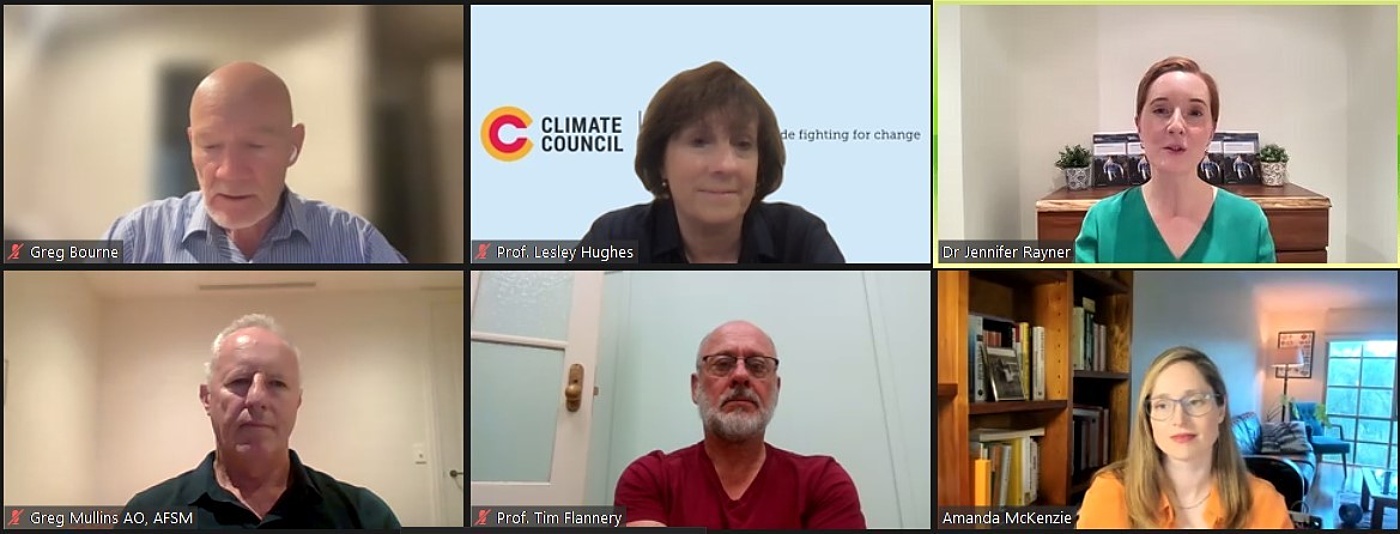
While acknowledging how far the climate change debate has progressed over the past decade, panelists agreed there was still much work to do in the years ahead.
This ranged from achieving more ambitious emissions reduction targets and adopting emerging innovative green energy technologies to reversing climate change fueled habitat loss and embedding the use of more sustainable transport options.
“We are experiencing the climate crisis in a way that we weren’t ten years ago because it’s all around us,” said Ms McKenzie, who cited the devastating fires in the northern hemisphere summer as an example.
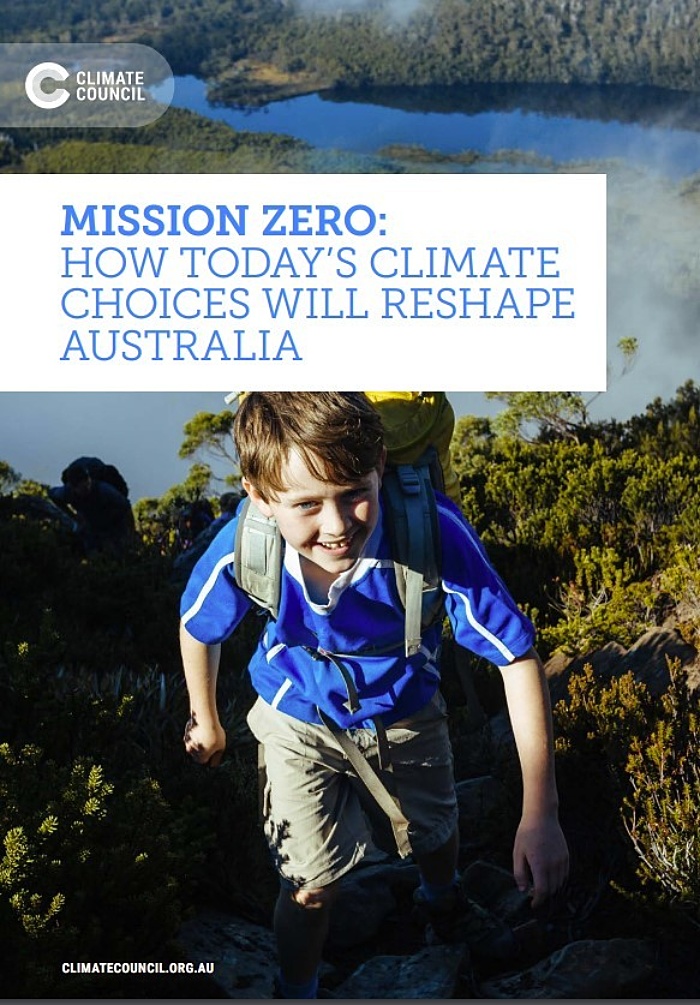
Hope for the future
Despite this, she was optimistic about Australians capacity for change.
“When I look back on the past decade, things have changed enormously and that gives me enormous hope for the future,” said Ms McKenzie.
“I think it’s really critical to keep that sense of hope alive in all of us.
“Because when you look back, if we just lay down and died at that moment when the Climate Commission was abolished and said we are giving up, then we wouldn’t have had the progress that we have helped to initiate.”
Ms McKenzie said she and her colleagues weren't satisfied to merely ride the wave the Council and its supporters had created but were determined to add to it.
“We want to keep pushing the envelope and saying, ‘there’s a huge mountain to climb, but here are the pathways to get there.”

Posted on 12 Feb 2026
Our special NFP trends report distils the views of more than two dozen experts.

Posted on 11 Feb 2026
The ballooning cost-of-living crisis is affecting Australian families to the extent that many…

Posted on 11 Feb 2026
Rev. Salesi Faupula is the Uniting Church’s moderator for the synod of Victoria and Tasmania. Born…

Posted on 11 Feb 2026
Service providers have expressed cautious support for the federal government’s Thriving Kids…

Posted on 11 Feb 2026
Australia’s not-for-profits need strategic investment by the federal government to support the…

Posted on 11 Feb 2026
For the first time, charities commissioner Sue Woodward has confirmed the Australian Charities and…

Posted on 11 Feb 2026
Opinions polls insist Pauline Hanson's fortunes are on the rise, but it is likely that enthusiasm…

Posted on 10 Feb 2026
As my family dropped our teenage son off at the airport in the first week of January to embark on a…

Posted on 04 Feb 2026
Last week’s announcement that women made up only one-third of recipients in the Australia Day…

Posted on 04 Feb 2026
As we move into 2026, I can’t help but think the world is wobbling a little.

Posted on 04 Feb 2026
An academic studying the phenomenon of “headline fatigue” – where news consumers tune out of…

Posted on 04 Feb 2026
In this time of escalating climate impact, the head of Australian Ethical Foundation, Kate…